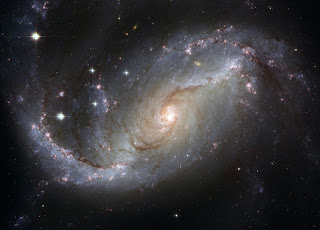Exploring Space Potential
Space exploration is the ongoing quest to understand the universe beyond our planet. It reflects humanity’s innate curiosity and desire to push boundaries. From landing on the Moon to sending probes beyond the solar system, each mission expands our knowledge, inspires innovation, and reveals Earth’s place in the cosmos. Beyond discovery, space exploration drives advances in science, technology, and even global cooperation. As we reach for the stars, we not only learn more about space—but about ourselves and our shared future.
Here are 15 Fascinating Facts About Space Exploration
1. Your Height Increases in Space
In microgravity, astronauts can grow up to 2 inches taller because the spine stretches out without the pressure of gravity compressing it.
2. The Apollo Guidance Computer Was Weaker Than a Calculator
The computers used on Apollo missions had less processing power than a modern digital watch or calculator, yet they landed humans on the Moon!
3. Footprints on the Moon Will Last Millions of Years
Since the Moon has no atmosphere, wind, or rain, the Apollo astronauts' footprints are still there—and could remain for 10–100 million years.
4. Space Smells Like Burnt Steak
Astronauts report that space smells like hot metal, welding fumes, or seared steak, likely due to high-energy particles interacting with space equipment.
5. One Spacesuit Costs Over $12 Million
A NASA spacesuit is a miniature spacecraft, built to protect astronauts from extreme temperatures, micrometeoroids and radiation.
6. Voyager 1 Is Still Sending Signals from Over 15 Billion Miles Away
Launched in 1977, Voyager 1 is now in interstellar space, still transmitting data back to Earth, powered by a radioisotope thermoelectric generator.
7. There’s a ‘Space Cemetery’ in the Ocean
Dead satellites and spacecraft are deorbited to crash into a remote part of the Pacific Ocean known as Point Nemo, far from any landmass.
8. Mars Has the Tallest Volcano in the Solar System
Olympus Mons, a volcano on Mars, is about three times taller than Mount Everest and could cover the entire state of New Mexico.
9. Astronauts’ Tears Don’t Fall in Space
In zero gravity, tears form bubbles and float around the eyes instead of falling down your cheeks—making crying quite uncomfortable.
10. Satellites Are Critical to Your Daily Life
From bank transactions to GPS, TV broadcasts, and weather forecasting, most people don’t realize how dependent we are on space-based infrastructure.
11. There's a Galaxy That Tastes Like Raspberries
Astronomers discovered that a dust cloud near the center of the Milky Way contains ethyl formate, the chemical that gives raspberries their flavor and rum its smell.
12. The Moon Is Drifting Away
Each year, the Moon moves 3.8 cm farther from Earth. In a few billion years, this could affect tides and the total solar eclipse phenomena.
13. The International Space Station Travels at 17,500 mph
That’s fast enough to circle Earth every 90 minutes—astronauts see 16 sunrises and sunsets per day!
14. Astronauts Experience Time Differently
Due to Einstein's theory of relativity, astronauts on the ISS age slightly slower than people on Earth—by a few milliseconds per year.
15. We’ve Sent Human Ashes Into Space
Ashes of people like Star Trek creator Gene Roddenberry and astronaut Gordon Cooper have been launched into space as memorials.






Comments
Post a Comment